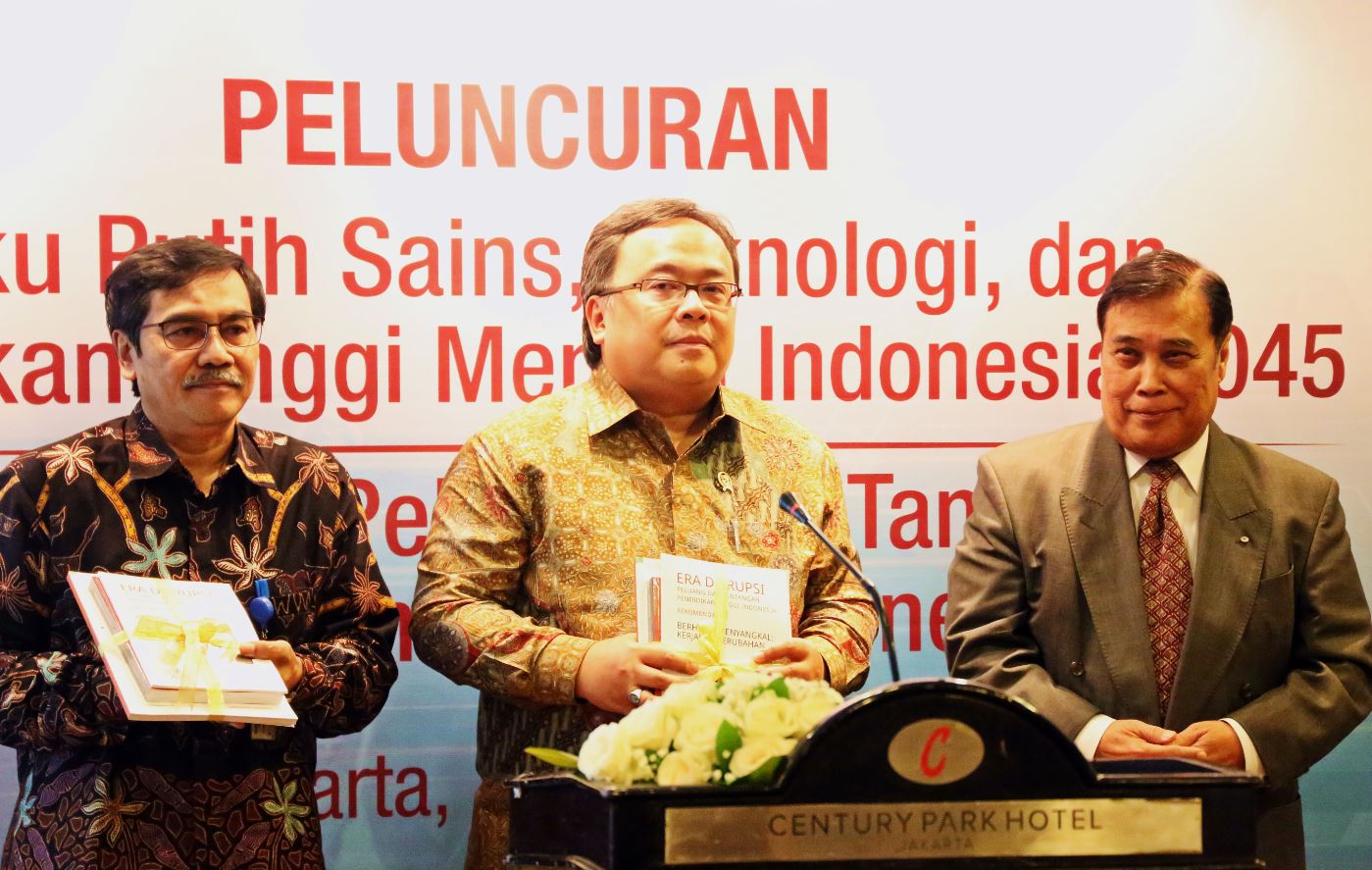By Salman and Ramadian Nugrahane
Higher education institutions in Indonesia play a critical role in the national development scheme. These institutions play their part in developing young generations who are knowledgeable and with high quality skills to drive the country’s development, productivity and growth in the next years.
When a nation is able to improve the quality of its higher education, and presumably the overall education system, the quality of life of the people will also increase, the economy is growing and thus the nation is developed.
On 12 May in Jakarta, the Indonesian Academy of Sciences (AIPI) launched two ‘white papers’ (buku putih). These are recognised as part of AIPI’s knowledge products and are independent documents to advise the Government and the public. The white papers offer a multidisciplinary approach and were developed by experts in their subjects to respond to nationwide problems in science, research and higher education. The two white papers were:
- Science, Technology, and Higher Education towards Indonesia 2045 edited by Prof Sofian Effendi and Dr Chairil Abdini.
- Disruption Era: Opportunities and Challenges of Indonesian Higher Education edited by Prof Mayling Oey-Gardiner.
The launching of the two documents is targeted as the answer or guidance to issues faced by the country’s higher education. The white papers were developed at the request of the Ministry of Research, Technology and Higher Education and Bappenas, and were launched by Prof. Bambang Brodjonegoro,the Minister of National Development Planning/Head of Bappenas, and Dr. M. Dimyati, Director General at the Ministry of Research, Technology and Higher Education.
The white paper on Science, Technology and Higher Education describes the macro conditions of higher education, science and technology, and the link with triple helix (university, government and industry). While the white paper on Disruption Era: Opportunities and Challenges in Higher Education examines in depth Indonesia’s higher education around research, human resources, funding, curricula, students and multidisciplinary issues.
The questions that the documents are trying to answer are whether Indonesia will be able to transform itself from middle economy to developed country, and whether the country will be able to narrow the gap in terms of the people’s economy. The books emphasize on strengthening the role of science and technology in higher education to answer the above questions, particularly on research and innovation.
In 2015, Indonesia is ranked 97th in Global Innovation Index, far behind Malaysia and Singapore. The number of publication of scientific journal in Indonesia is also very low. During his remarks in the launching, Mr. Bambang Brodjonegoro said the country need to put more investment in the education sector. Currently, Indonesia is only allocating around 0.1% of the GDP for research, while the number for Singapore is at around 2.2%, Malaysia is at 1.25%, South Korea is at 4% and Japan is at 3.6%.
Today, the government is proposing to setup Innovation Fund to accelerate research and development practices in Indonesia. The Innovation Fund is expected to help transforming the country’s assets by promoting the creation of an entrepreneurial and innovative culture; to accelerate the growth of innovation, productivity, and competitiveness; to shift the focus of innovation to the private sector; to provide financial support with easy access mechanism; and to stimulate and encourage the process of innovation.
The ‘Disruptive Era’ document recommends higher education to implement hybrid education system by combining traditional and modern/digital system. Science must be spread out to reach as many people as possible by using, for example, Internet technology and the power of social media. Science should be inclusive and not exclusive and offer the same opportunity to every citizen to have access to higher education.
Higher order of learning should include multi-disciplines, inter-disciplines, and trans-disciplines. In short, the country may need more ‘jack-of-all-trades’ type of graduates who can in turn spread the knowledge to more people. Graduates must also embrace an inclusive and comprehensive mindset to fight against radicalism.
Improving the education system along with all the aspects is not an easy task but it is required to ensure that the country is going forward. Curriculum, financing, research culture, cooperation and collaboration with foreign partners, are some of the aspects that the country need and must improve.
As one John Dewey said, “If we teach today as we taught yesterday, we rob our children of tomorrow”.






